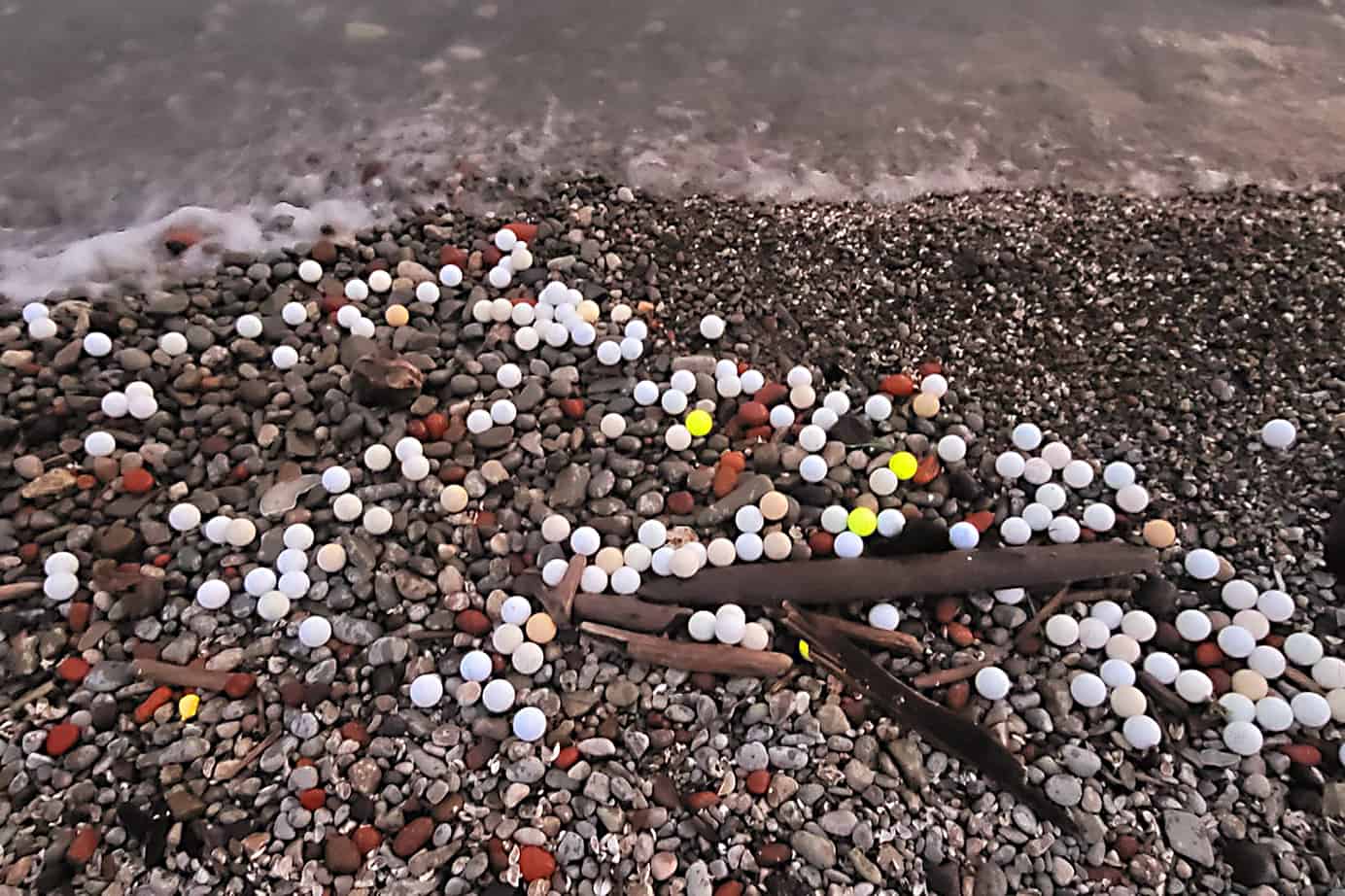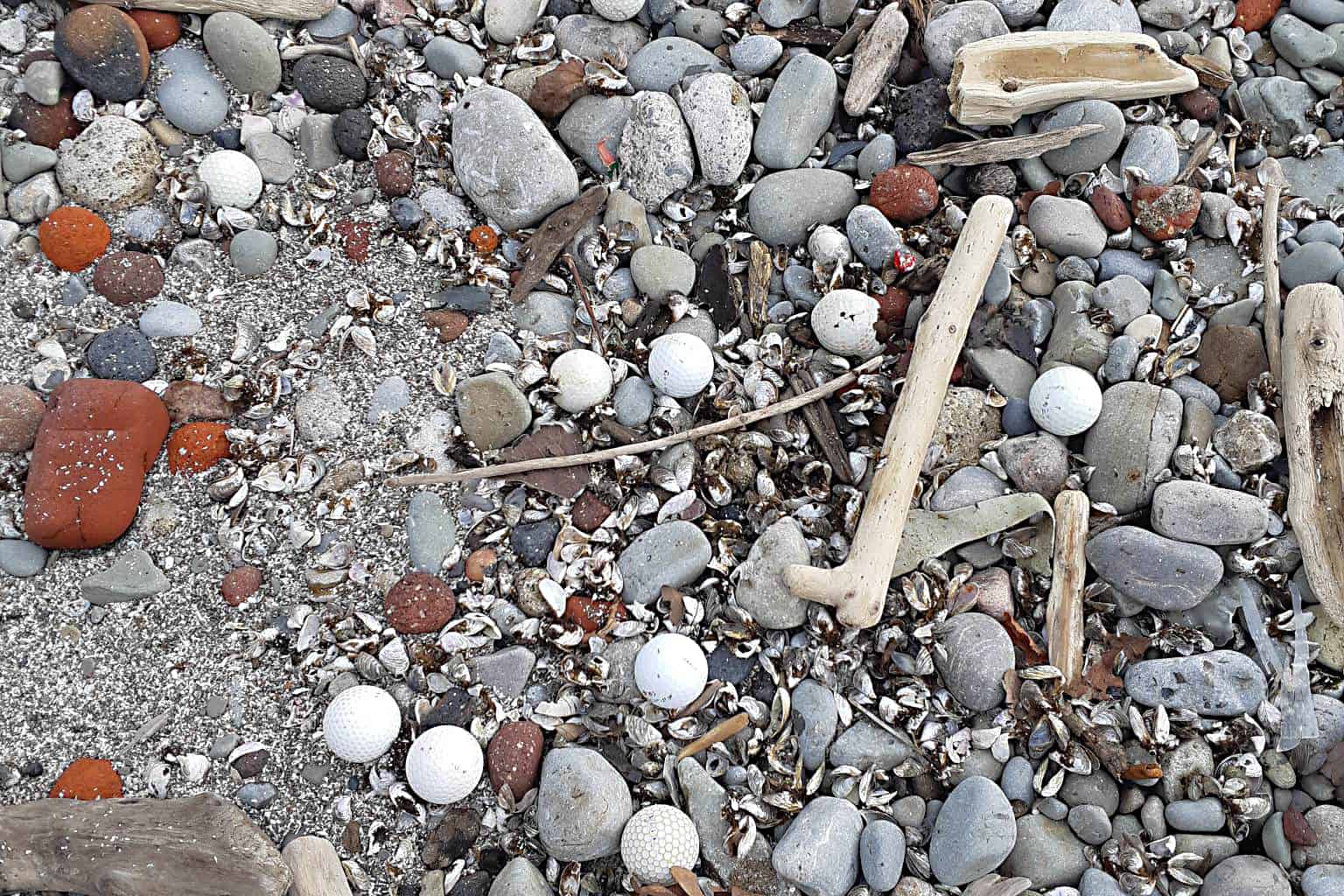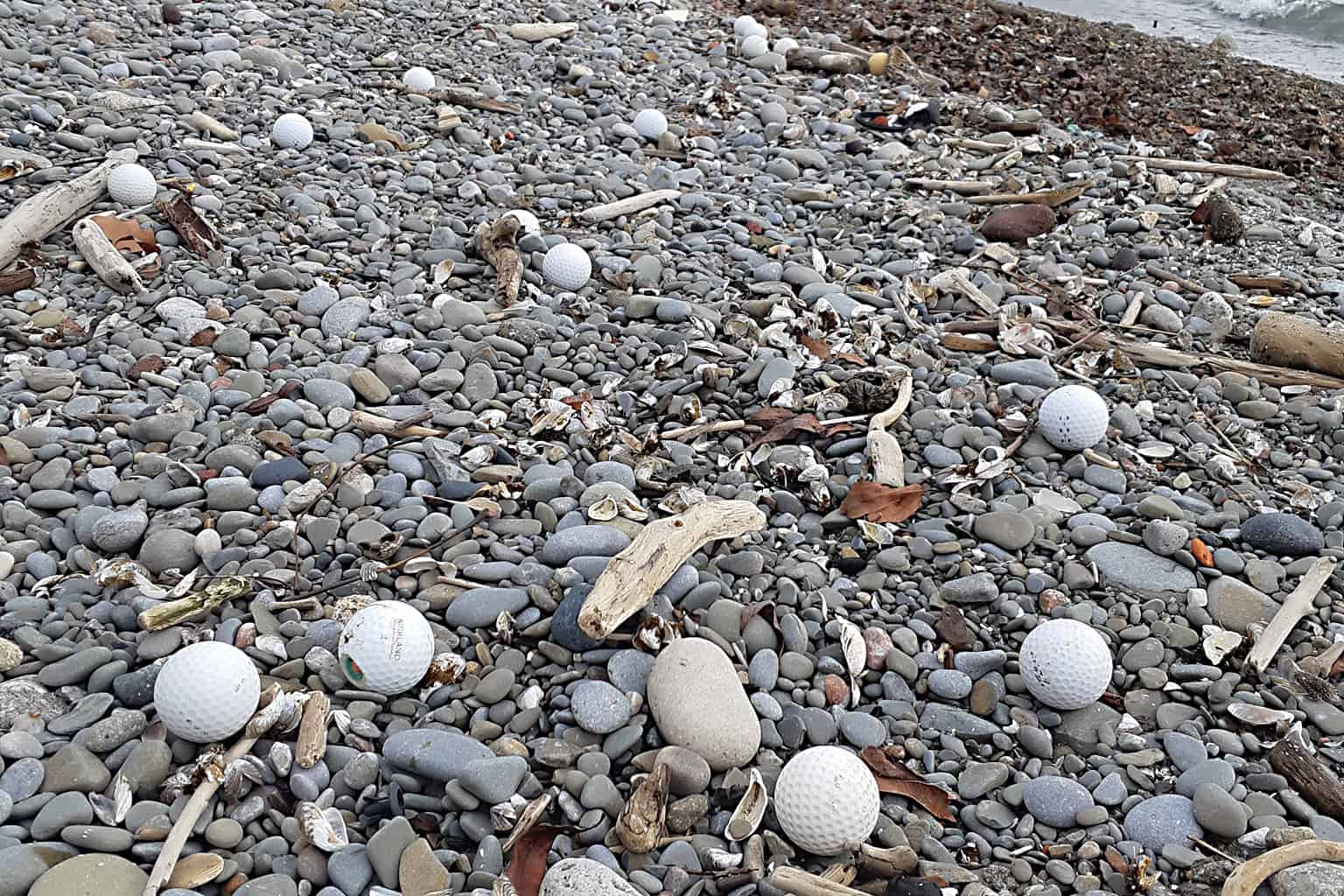Dozens of golf balls found on a Mississauga beach
Published February 3, 2023 at 11:27 am

A large quantity of golf balls appeared on a Mississauga beach and residents wondered how they got there.
The golf balls were littered across the beach at Brueckner Rhododendron Gardens at 666 Lakeshore Rd. W. earlier this week, according to posts on Facebook.
One resident tells insauga.com they had never seen so many golf balls at the beach in the decades they have lived in the area.
Another person said their kids picked up over 20 pounds of golf balls off the beach.

Jerome Plaatjes took photos of golf balls on the shore at at Brueckner Rhododendron Gardens this week.
The City of Mississauga is aware of the issue.
“City staff have collected a few balls close to the shore and will continue to monitor the area,” Ryan Marlow, acting manager of parks for the City of Mississauga tells insauga.com.
While some residents speculated the golf balls may have come from area golf courses, washed down local rivers in storms, Marlow didn’t pinpoint the source of these balls.
He indicated they could come from people hitting them directly into the lake or from a golf driving range. Hitting golf balls into a water body was popularized in the TV series Seinfeld when Kramer drove balls into the ocean.
“We are encouraging and reminding residents to refrain from hitting balls into the lake, playing golf in City parks or public areas and to use indoor golf centres and driving ranges,” Marlow says.

Jerome Plaatjes took photos of golf balls on the shore at at Brueckner Rhododendron Gardens this week.
Golf balls ending up in the water is an international issue. A teen in California found 10,000 golf balls – more than half a ton in the ocean.
In addition to creating litter, golf balls can be dangerous to the environment.
In 2009, research teams at the Danish Golf Union found that golf balls release a high quantity of heavy metals when dissolving. Dangerous levels of zinc were found in the synthetic rubber filling used in solid-core golf balls. When submerged in water, the zinc attached itself to the ground sediment and poisoned the surrounding flora and fauna.
Also, it takes between 100 to 1,000 years for a golf ball to decompose naturally.
Other studies found balls break into small fragments through the constantly breaking waves. This puts microplastics into the water impacting wildlife and humans.
The City of Mississauga suggests contacting 311 if you see anyone hitting golf balls in a city park.
insauga's Editorial Standards and Policies advertising





